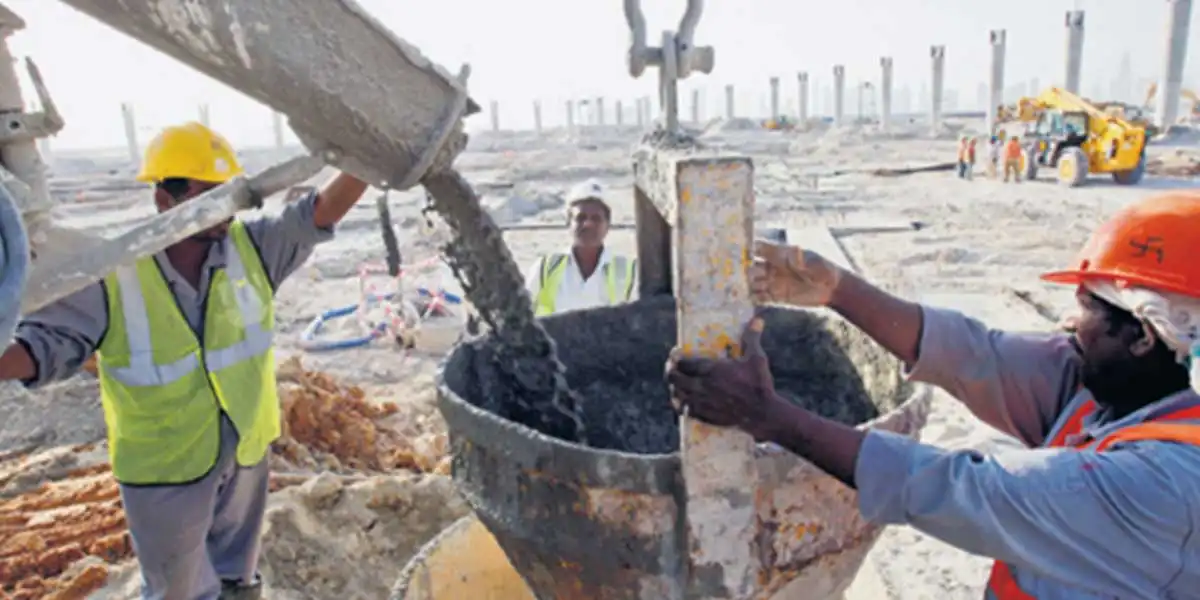
Oct 29, 2015
Blog Digital World Global Urbanization Bodes Well for Construction Chemicals Sector, Especially India’s
During the next five years, India’s government intends to spend Rs 48,000 crore ($48 billion U.S.) on building smart cities. The initiative, which coincides with the country’s infrastructure and construction boom, is expected to offer huge growth opportunities for the construction chemicals sector. The sector will play a pivotal role in developing robust and sustainable infrastructure in India’s planned cities and towns.
INDIA'S RAPID URBANIZATION A GLOBAL TREND
Global urbanization is swelling cities around the world, with more than 70% of the world’s population already living in urban areas, according to BCC Research. The growing awareness of our fragile ecology and the evolving environmental compliances and regulations have made it difficult to govern these large cities. Key driving forces for smart cities markets like India’s include the increasing rate of migration from rural areas into new urban areas coupled with the expanding global population and the demand for a sustainable infrastructure.
According to CNN, India’s urban population is projected to reach 590 million in 2030, up from 340 million in 2008. The news agency also cited a 2010 McKinsey and Company study which estimated that India will “have to build the equivalent of one Mumbai of commercial and residential space every year to keep up.” In order to meet that challenge, India’s Prime Minister Narendra Modi launched the “100 Smart Cities” mission in June, 2014. In fact, new cities are already in development, especially in the corridor between Delhi and Mumbai, India’s political and business capitals. Planners envision a high-tech industrial zone anchored by a major freight line that crosses six states, notes Indian Tollways.
Venkaiah Naidu, India’s minister for urban development, explains that a smart city “has to be smart, not just in physical terms,” but also in terms of administration, governance, tax collection, sanitation, drinking water, power supply, solid waste management and transport facilities, to name but a few vital urban services.
“The reason is that people come to cities for education, employment, entertainment and economic opportunities,” Naidu told The Economic Times. “When economic opportunities are made available, naturally they add to the GDP. As of today, the cities are earning you 63% of your GDP. If you go by the same space of urbanization, it may go up to 80-85%.”
As GDP rises, so will the need for construction chemicals in all facets of the construction industry. The country’s economic expansion, higher public investment in infrastructure and real estate, and the participation of overseas investors and contracting companies in its construction industry are driving demand, reports Giles Everitt, managing director of Chryso India, which produces specialty chemicals for construction.
WHAT ARE CONSTRUCTION CHEMICALS?
Construction chemicals enhance the strength, durability, economy and sustainability of concrete structures. They are typically mixtures of substances (in liquid, paste or powder form) which are applied or used on the construction site, according to the European Federation for Construction Chemicals.
Construction chemical products include additives for cement, gypsum and clay, concrete and mortar admixtures and additives, corrosion protection for reinforced steel in concrete, modified, mineral mortar systems, hydrophobing agents, reactive resins, sealing and bonding products, emulsions for waterproofing, and liquid-applied membranes for waterproofing.
India’s rapid urbanization has spurred a compound annual growth rate of 20% of its construction chemical industry. According to Everitt, “the demand for construction chemicals is expected to develop steadily and will be visible in 2016, when the government’s policy and project announcements take concrete shape on the ground. The sector is geared to play a constructive role in sustainable and energy-efficient infrastructure development.” For India, he adds, “the development of Smart Cities will ensure high-tech urban economic zones with new housing, and the rejuvenation of existing urban sprawls and slums.”
India’s construction and manufacturing is booming, and taking the construction chemicals industry with it.
The global market for smart city technologies will grow from $212.3 billion in 2013 to $668.5 billion in 2019, reflecting a five-year compound annual growth rate (CAGR) of 17.9%. North America, the largest market, is anticipated to reach $218.3 billion in 2019, with a 16.1% CAGR. Europe, the region with the highest projected growth rate at 23.1% CAGR, will reach $197.7 billion by 2019.

From smartphones to satellites, antennas play a vital role in enabling the seaml...

Introduction Artificial Intelligence (AI) and the Internet of Things (IoT) are r...

We are your trusted research partner, providing actionable insights and custom consulting across life sciences, advanced materials, and technology. Allow BCC Research to nurture your smartest business decisions today, tomorrow, and beyond.
Contact UsBCC Research provides objective, unbiased measurement and assessment of market opportunities with detailed market research reports. Our experienced industry analysts assess growth opportunities, market sizing, technologies, applications, supply chains and companies with the singular goal of helping you make informed business decisions, free of noise and hype.